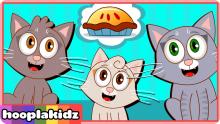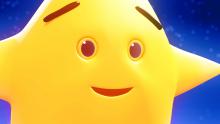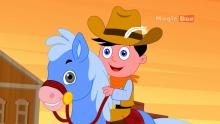Three Little Kittens
Nursery Rhyme Categories:
"Three Little Kittens" is an English language nursery rhyme, probably with roots in the British folk tradition. The rhyme tells of three kittens who first lose, then find and soil, their mittens. When all is finally set to rights, the kittens receive their mother's approval and some pie.


